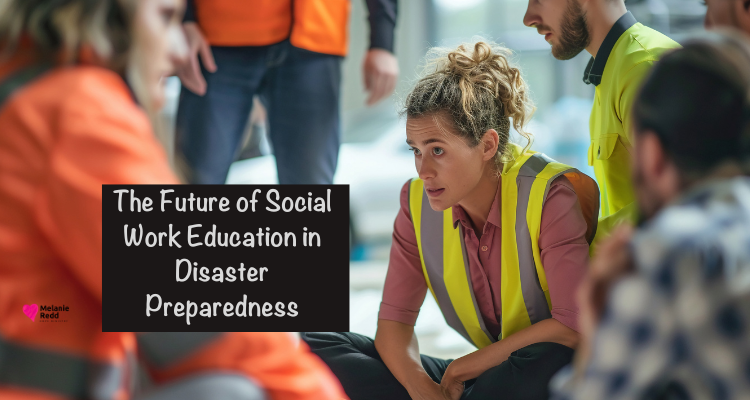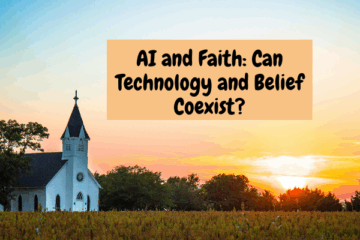The Future of Social Work Education in Disaster Preparedness

The Future of Social Work Education in Disaster Preparedness
Have you ever thought about who steps in when a natural disaster strikes or when communities face long-term crises? Social workers play a critical role in helping individuals and communities recover and rebuild after disasters.
With climate issues, increasing population density, and global conflicts, the demand for skilled professionals in disaster preparedness has grown significantly. Social work education is evolving to meet these challenges, combining traditional training with new approaches that prepare students to lead in crises.
In this blog, we will share how social work education is adapting to focus on disaster preparedness, the skills it provides, and its role in shaping professionals ready to address complex global challenges.
Why Disaster Preparedness Matters in Social Work
Disaster preparedness is essential because it allows communities to respond more effectively to crises. Social workers often act as a bridge between individuals, organizations, and resources during these times. Their ability to plan for and mitigate the effects of disasters can save lives and reduce long-term harm.
Social work education has started emphasizing disaster preparedness because disasters impact vulnerable populations the most. People who already face economic challenges, health issues, or social inequalities are often hit hardest. Social workers trained in this area can develop strategies to reduce risks and create systems that support recovery.
The Integration of Disaster Preparedness in Graduate Programs
Graduate education in social work is evolving to meet the growing demand for expertise in disaster response and resilience. A prime example is the Master of Social Work (MSW) combined with the Master of Science in Disaster Resilience Leadership (MS-DRL) degree. This pathway provides students with essential tools to address crises, emphasizing both practical strategies and compassion. MSW disaster dual degree programs go a step further, combining social work training with disaster resilience leadership to create a comprehensive learning experience for tackling complex challenges.
These specialized degrees include coursework in emergency response coordination, community risk assessment, and policy development. The interdisciplinary nature of such training equips students with the expertise to manage both immediate and long-term disaster impacts. With dual options, graduates are well-prepared to take on leadership roles that connect social work principles with disaster management strategies.
The Role of Interdisciplinary Learning
Disasters don’t occur in isolation. They often involve issues related to health, environment, and infrastructure. Interdisciplinary learning allows students to see the bigger picture and collaborate with experts in other fields. Social work programs are introducing courses that focus on environmental science, public health, and crisis communication.
This broader understanding enables social workers to contribute meaningfully to disaster preparedness plans. For instance, a social worker with knowledge of environmental risks might work with city planners to reduce the impact of flooding in vulnerable neighborhoods. By working across disciplines, social workers can provide solutions that are both practical and sustainable.
Leadership Development in Social Work Education
Leadership is becoming a central part of social work education, especially in the context of disaster preparedness. Professionals in this field are often called upon to coordinate efforts, advocate for resources, and make decisions under pressure. Graduate programs are equipping students with leadership skills that help them take charge in crises.
Courses on management, policy analysis, and team coordination prepare students to lead recovery efforts effectively. These leadership skills are particularly important for working with organizations like NGOs, government agencies, and community groups during emergencies. The ability to lead with empathy and clarity can make a significant difference in disaster outcomes.
Preparing for Global Challenges
The challenges of disaster preparedness are not limited to one country or region. Climate change, migration, and global health crises require solutions that work across borders. Social work programs are encouraging students to think globally while addressing local issues.
This global perspective helps social workers develop programs that can be adapted to different cultures and contexts. For instance, a professional working in a flood-prone area in Asia might use strategies learned during training in North America. By focusing on shared challenges, social workers can create more inclusive and effective preparedness plans.
The Importance of Cultural Awareness
Disaster preparedness efforts must respect the cultural practices and traditions of the communities they serve. Social work programs are teaching students to engage with communities in ways that build trust and collaboration. Cultural awareness is critical in creating programs that people will accept and use.
For example, a social worker assisting in a rural community after a cyclone might involve local leaders in the planning process. This approach helps ensure that recovery efforts align with the community’s values and needs. Being culturally aware also helps social workers avoid unintentionally creating solutions that are impractical or ineffective.
Technology in Disaster Preparedness Education
Technology is playing a bigger role in disaster preparedness. Social work programs are incorporating training on tools like geographic information systems (GIS), which can map areas at risk for disasters and data analysis platforms that track relief efforts. These tools allow social workers to plan more effectively and respond faster when disasters occur.
For instance, a social worker might use GIS to identify areas with high populations of older residents who need additional support during an evacuation. Learning how to use these technologies makes social workers more versatile and better equipped to handle complex emergencies.
Policy Advocacy and Social Work
Advocating for policies that support disaster preparedness is another critical area of focus in social work education. Policies determine how resources are allocated and how communities can recover from disasters. Social workers trained in policy advocacy can influence decision-makers to prioritize vulnerable populations and long-term recovery.
For example, a social worker might work to pass legislation that funds emergency shelters or provides mental health services after disasters. By engaging with policymakers, social workers can create systemic changes that benefit communities before, during, and after crises.
Conclusion – The Future of Social Work Education in Disaster Preparedness
As disasters become more frequent and complex, the role of social workers in disaster preparedness will continue to grow. Social work education must keep adapting to meet these challenges, offering students the skills and knowledge they need to make an impact. Programs that emphasize interdisciplinary learning, leadership, and practical training are setting the standard for the future.
What role will you play in shaping the future of disaster preparedness? The demand for compassionate, skilled professionals is greater than ever. The steps taken today in social work education will help build stronger, more resilient communities for years to come.
Were you encouraged by what you read?
Then, would you share this article with a friend, co-worker, or family member?
Or, maybe you can send it to a friend or family member?
This blog occasionally uses affiliate links and may contain affiliate links.
Additionally, Melanie Redd is a participant in the Amazon Services LLC Associates Program.
This is an affiliate advertising program designed to provide a means for sites to earn advertising fees. These are earned by advertising and linking to amazon.com.
Also, for more on my disclosure policy, click HERE.
© Melanie Redd and Hope Ministry, 2024. Unauthorized use and/or duplication of this material without express and written permission from this blog’s author and/or owner is strictly prohibited.
Further, excerpts and links may be used, provided that full and clear credit is given to Melanie Redd and Hope Ministry.
Please give appropriate and specific directions to the original content.




0 Comments